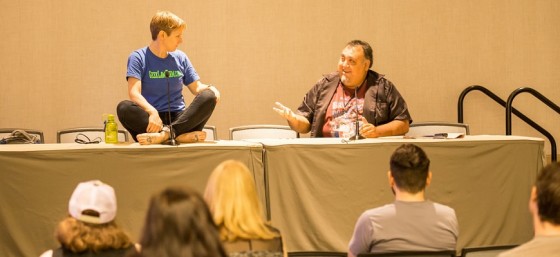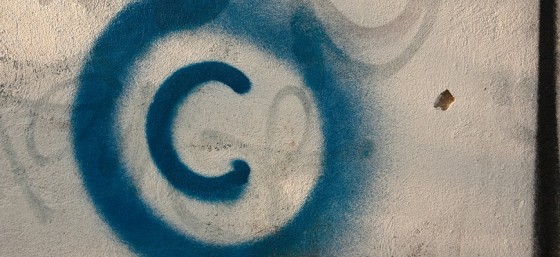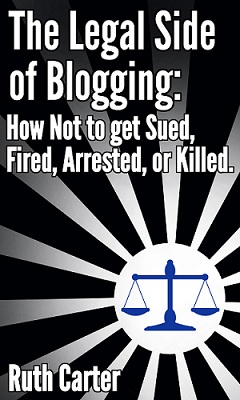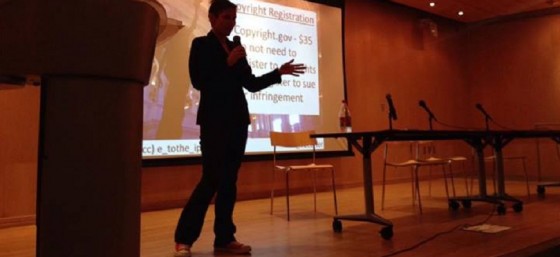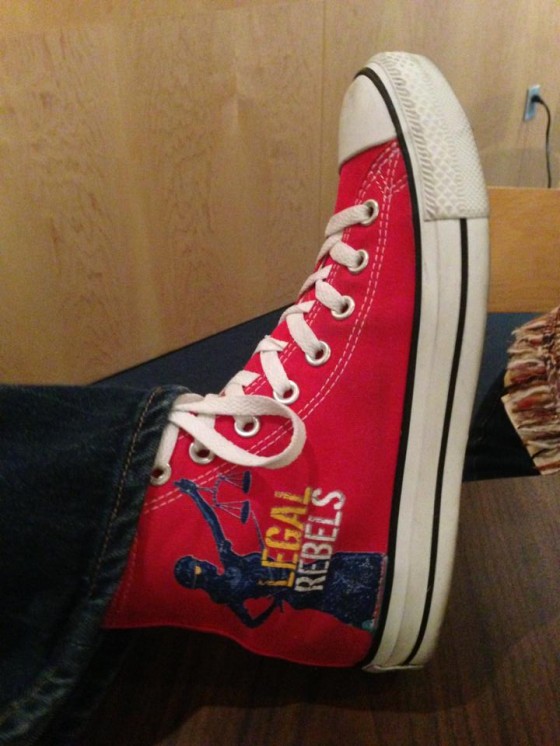I regularly get questions from people who sell shirts on Etsy, Café Press, or a similar website and they claim that another user is stealing their design. When I look more closely at the situation, I see all the person is selling is shirts with a short phrase, in a common font, and no other artwork or design elements. Many times, I have the unfortunate responsibility of telling them that there’s no intellectual property in their design, so there’s no infringement (that’s legalese for “stealing”).
No Copyright in Short Phrases
Copyright applies to original works of authorships when they are fixed in a tangible medium. A t-shirt is a tangible medium, and it’s possible to have an original work on a garment. However, short phrases aren’t original works, so the act of merely printing one on a shirt does not create a copyright-protected article.
If that’s all you’re selling – word or a phrase on a shirt – there’s likely nothing you can do (from a copyright perspective) to stop your competition from selling a shirt with the same phrase on it. If you look on any of these DIY shirt and craft sites, you’ll see the same phrases on shirts from different sellers. There’s no copyright protection for words, images, or phrases like “geek,” “reasonable person,” “Introverts Unite! Separately in your own homes,” and even more creative phrases like “terminally soulless douche canoe.”
This used to be less of a problem before we had Teespring, Zazzle, and sites that make it easy to create and sell shirts and whatnot. In the past, if you wanted to sell a shirt, you had design it, have it printed, and then sell them in shop or on the street, or if you had html skills, you could create a website and people could mail you a check for a shirt. That’s what my friend, Peter Shankman, did when he sold anti-Titanic shirts in 1998. He started selling them in Times Square and then sold them online. He was a success, in part, because he had no competition.
What Could be Infringement
Every t-shirt design on Etsy is not up for grabs. Copyright does not protect short phrases, but it does protect designs with original artwork on them. Additionally, copyright protects the images you post of your shirts on your site. If you see another seller using your photos, that would likely be infringement (assuming it’s your photo). Sending a DMCA takedown may be sufficient to get them removed from their online store.
The other thing to watch for is trademark infringement. A seller can use a short phrase as a trademark to brand their wares. They can also create a logo that they put on their products. If you see someone using your trademark or a mark that is similarly close to yours, that could be infringement and worth investigating.
Beat the Competition in the Marketplace
For anyone who is selling these types of shirts, the best way to deal with your competition is be better than they are. Give your customers a reason to buy from you than from another seller, or having it made at a t-shirt shop. It could be your prices, the quality of the garments, or something about your company that makes you more desirable than the others.
Beyond that, you may want to consider upping your t-shirt game by creating or purchasing designs that will be protected by the Copyright Act.
Copyright is an area of the law with many gray areas, so if you’re having legal issues regarding your copyright rights, you can contact me directly or an intellectual property lawyer in your community. I regularly post about copyright and other IP issues on Twitter, Facebook, YouTube, and LinkedIn. You can also get access to more exclusive content that is available only to people on my mailing list, by subscribing here.


